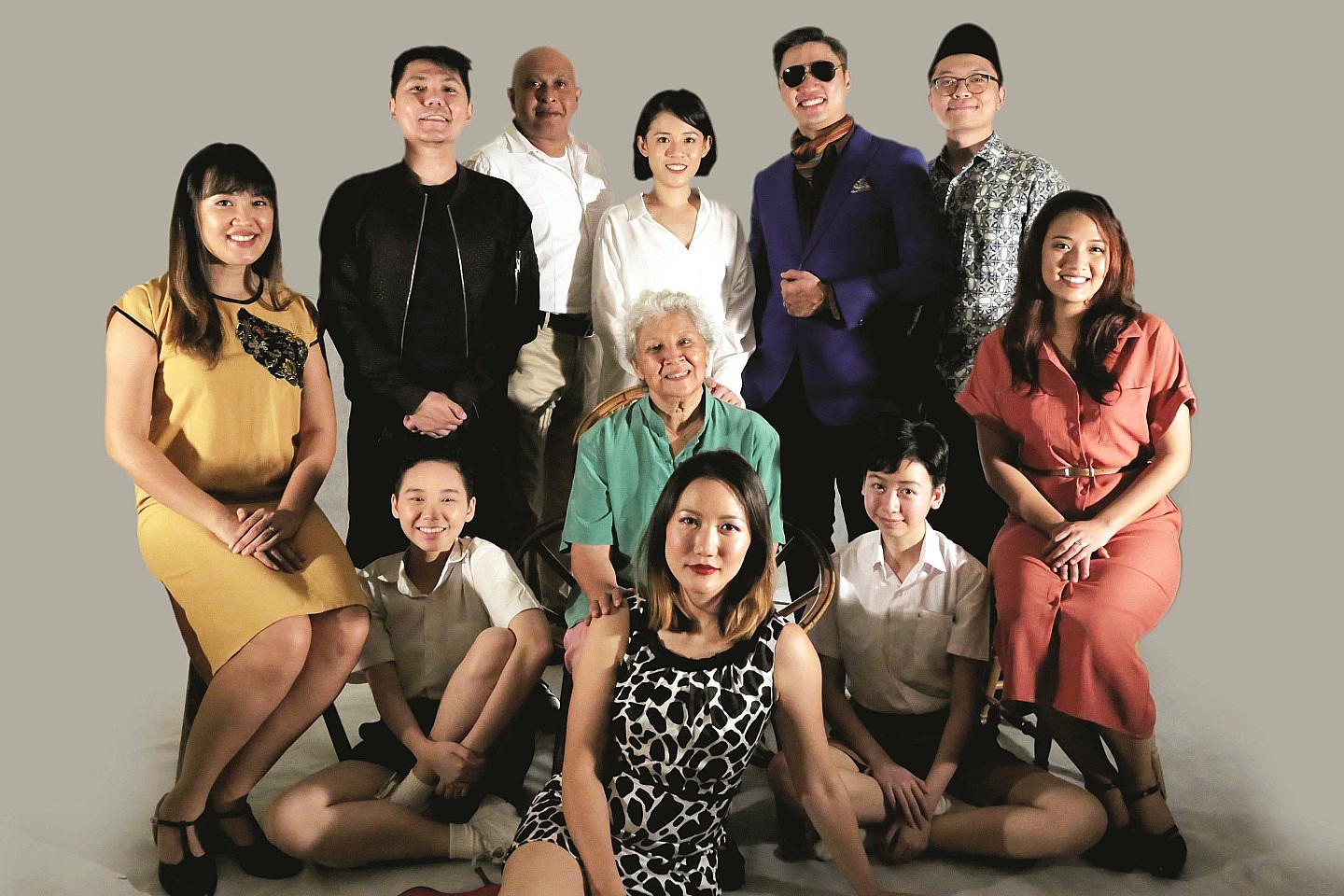
First staged in 2002, Stories For Amah by Mark Beau de Silva welcomes a new cast (Photo: klpac)
Mid-way through The Actors Studio’s 30th anniversary programme comes the re-staging of a show that many would no doubt find poignant and a little sentimental. It is, after all, the play that launched Mark Beau de Silva as a playwright. It has had three successful restagings and five nominations at the inaugural BOH Cameronian Art Awards.
But more than that, when Stories For Amah was first staged in 2002, it was to an audience hungry for fresh, local stories, and its “brutally honest” account of a Eurasian family and the struggles with cultural and personal identity, among other things, had never been confronted quite the same way before.
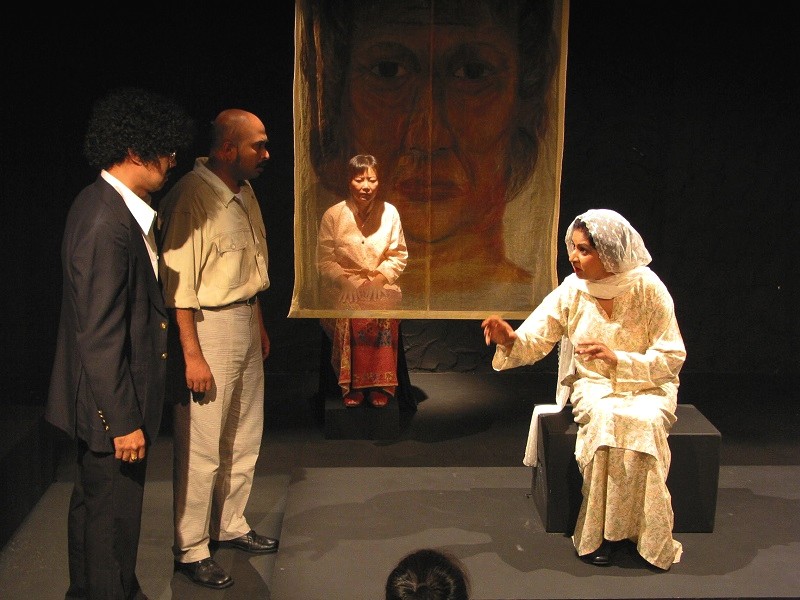
Director Joe Hasham recalls the moment of revelation when he read the script. “It was 17 years ago and The Actors Studio had started a Malaysian playwright series. Mark saw a notice of it and sent in his script. I read it and immediately got in touch with him because I was just bowled over by its raw truth. I had already been here (Malaysia) for quite a number of years by then — about 17 as well, in fact — and yet it felt like something I had not read before. It wasn’t even like a play in a way but a confessional of someone just pouring his heart out.”
De Silva admits Stories For Amah was written during a period of despair. Recalling his first year in Kuala Lumpur, the Penangite says he was on the verge of giving up and going home after failing to achieve anything. “But at that moment, I felt compelled to share my pain and somehow, that became a letter to my grandmother. At first it was just snippets, monologues and stories that I never told her before her passing.”
His grandmother had passed away four years previously and de Silva had never really had a chance to mourn her until that cathartic exercise. “The Chinese believe that if you cry, the spirit cannot go in peace, so we were told not to cry. And somehow, I did not cry for four whole years until that day in KL. I wrote this with a lot of tears,” he says, laughing.
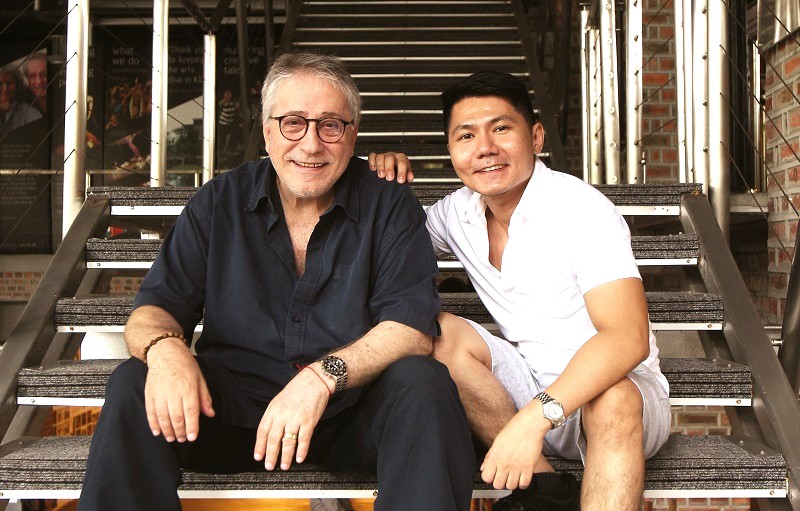
“Even when Joe said he wanted to restage it, I reread the script and was crying again!”
Hasham chimes in, “During rehearsals, the cast would also cry! But that said, even as this play brings out raw emotions in people, there are also hysterically funny scenes, not just because it’s clever dialogue, but because it’s just real life.”
Anyone who has seen a play by de Silva would recognise these qualities, though they only work because of the unaffectedness that underlies his writing. Interestingly, Stories For Amah was the spark that helped him find his voice. As Joe notes, “It was as if there was a treasure inside this person that had been unlocked. He doesn’t make up stories so to speak but relies on his experiences and people that he knows.”
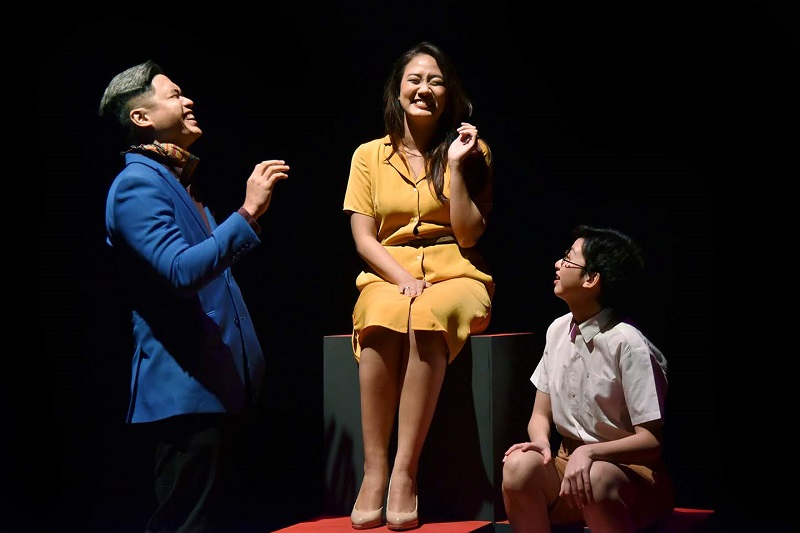
De Silva points out that it does come at a cost, as well as with burden of responsibility. “These are not just my stories as I’m telling them. They are also my mother’s stories, my father’s and my grandmother’s. So there’s always that thought of who could I be hurting with my plays? Thankfully, the first time I staged this play, my whole family came and they felt it was their story too.”
There are some autobiographical elements of Stories For Amah, which centres on Ruth de Souza, a Chinese-Eurasian girl. Having just relocated to Kuala Lumpur, she finds herself contending with who she is in this new place, as memories of her childhood in Kulim and living in the police barracks with her strict policeman father — not to forget a conflicted upbringing with Chinese culture on her mother’s side and Eurasian identity on her father’s — play out in flashbacks.
In the play, de Silva portrays his parents, his grandmother and the kooky aunt, who has since made appearances in several of his works, quite candidly. Told in a mixture of Manglish and Hokkien, the play looks at the realities of growing up “lain-lain” in what is supposed to be multicultural Malaysia.
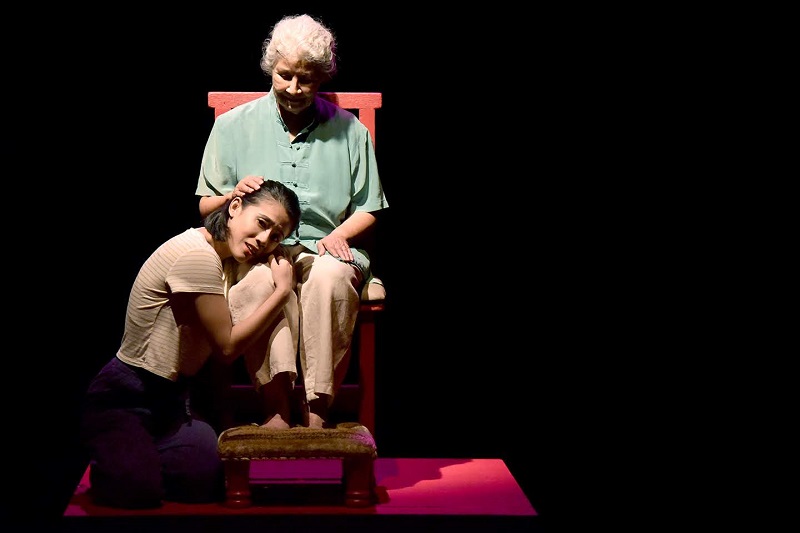
Even for those who have seen the show, the 2019 production staging this weekend will be a chance to look at the themes of identity and cultural belonging through today’s lens. “If anything, things could be worse now than it was before,” says Hasham. “At least 17 years ago, we used to talk about things and to be even slightly critical. But nowadays, everyone is so politically correct.”
“Recently, one of our former academy students, Amelia Henderson, won the Model of the Year award at the 2019 Asia Model Festival in Seoul, South Korea. But there were all these netizens commenting on her post, saying she shouldn’t represent Malaysia, or that she’s not Malaysian, just because she has mixed heritage. She was born and bred here,” interjects de Silva. “When I read it, I realise that we’re still in that place from when I was a student in school, terrified of explaining that I’m not pure Chinese or answering the question of ‘what am I?’”
That awareness will perhaps make this production of Stories For Amah nuancedly different from its original staging. As the director, Hasham says he relished the opportunity to approach it with a more experienced eye, be it understanding the racial issues in Malaysia as well as in revisiting the little moments of the play with new insight.
“The other difference is that I have a totally new cast, except for Kennedy Michael, who will reprise his role as Papa. And as most of the cast this time around are more experienced than the original one, I’m allowing much more collaboration with my actors, though I am also more demanding of them. There’s also some additional music and enhanced lighting design but other than that, the play remains true to the original text,” he explains.
Ho Lee Ching, best known for her works OCD and In/Out, stars as Ruth. The director says she will bring a different feel to the role that will be equally as brilliant as that of her predecessor, Mew Chang Tsing. Taking over the role of Mama is Anrie Too while others in the nine-strong cast include Grace Ng, Nabilah Hamid, Michael Chen, Chrystal Foo, Nicole Kiew and Benedict Chin. The casting of Datuk Faridah Merican as Amah, who hardly has any lines but whose presence is arguably the anchor of the play, will be particularly interesting.
Stories For Amah will be held from June 27 to 30 at Pentas 2, the Kuala Lumpur Performing Arts Centre, Off Jalan Strachan, KL. Tickets are priced at RM60. Buy tickets here.
This article first appeared on June 24, 2019 in The Edge Malaysia.


